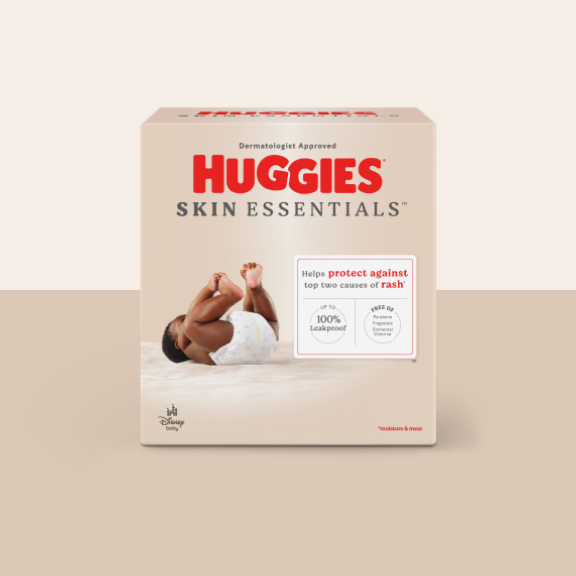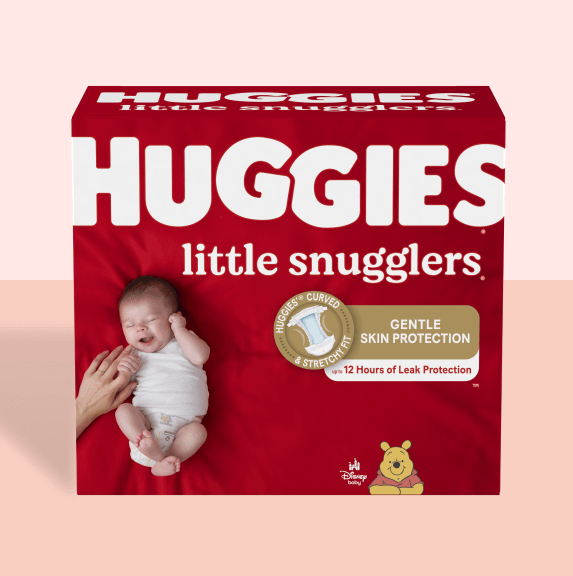Is that my baby I can feel?
Remember though, every baby will develop their own pattern of movements and every mother will have her own unique experience of her baby's movements. It’s very common to be unsure in the early days of feeling movements and you may question if it’s all in your imagination. Try to be patient as you wait and see. You will soon have no doubt that what you’re feeling is your baby!
Your physical changes this week
Your uterus is about the size of a cantaloupe, so it's no wonder that you are feeling a dense, heavy feeling in your pelvis. Pick one up next time you're at the grocery store and feel the weight of it. You're entitled to feeling a little worn out by the end of the day!
If you have put on a fair amount of weight, you may be starting to get stretch marks. Most women do develop these during pregnancy and not a lot can be done to avoid them. Excess weight gain is one risk factor, as is a family history. Rub some moisturizer onto your belly each day but avoid spending a lot of money on creams which claim to prevent stretch marks. They don’t tend to work.
Think that noisy snorer is your partner? You may want to think again. This is the time a lot of pregnant women start snoring, much to their horror. Blame those congested mucous membranes and your nasal stuffiness. Sleeping on a couple of pillows can help, as can lying on your side. For some women, saline nasal sprays are useful. They help to liquefy nasal secretions and moisturize the nasal passages if dryness if a problem.
Where's the food? This week you could really find your appetite increases. Until now, the baby has been growing quickly, though for the next couple of weeks its growth will plateau slightly. Stock the fridge and pantry with lots of healthy foods which will help support you both. Look for low GI (Glycemic Index) foods which take longer to digest and will satisfy your hunger for longer periods of time.
Your heart is working extra hard to pump your blood. Your total circulating blood volume has increased so much that your heart needs to work almost 50 percent harder in pumping blood around your body.
Your emotional changes this week
You may feel as if you just want to keep the news of the baby's movements all to yourself for a while. A lot of women feel some silent, secret connection with their baby which they want to keep private. This is fine though you may want to let your partner know too, just to be fair.
If the thought of childbirth has seemed like some far off event, this week it may not seem so distant. Your expanding belly and the baby's movements combine to provide a constant reminder that at some stage, your baby will need to come out. Do allow yourself time to think about how you want your labor to proceed and what you can do to feel actively involved in your birth plan.
Your baby's changes this week
This week your baby could be sucking its thumb. Ultrasounds taken at 18 weeks have shown lots of babies have found their little thumbs by this stage and don’t want to let go. Some babies are born with blisters on their fingers and thumbs, from months of thumb sucking.
Your baby's bones are ossifying, meaning they're getting stronger and are less like cartilage. Watch your calcium intake and make sure you're getting enough dairy foods. Even if you're not a milk drinker make sure to get calcium in your diet with cheese, yogurt, fish with edible bones and even almonds. Green leafy vegetables also contain calcium.
Hints for the week
Most women have their screening ultrasound between the 18th and the 20th week of pregnancy. Make your appointment for a time when your partner can come as well so you're not on your own. Check when you make the appointment if you need to bring in your own USB to record the images - you don’t want to be caught short!
Start a list of questions for your pregnancy care provider. Pregnancy amnesia can make your memory, well, a distant memory. Keep a notebook for jotting down any questions or worries you have. Then all you have to do is remember to take the notebook with you to your appointments.
Stay tuned for Week 19.
The information of this article has been reviewed by nursing experts of the Association of Women’s Health, Obstetric, & Neonatal Nurses (AWHONN). The content should not substitute medical advice from your personal healthcare provider. Please consult your healthcare provider for recommendations/diagnosis or treatment. For more advice from AWHONN nurses, visit Healthy Mom&Baby at health4mom.org.










